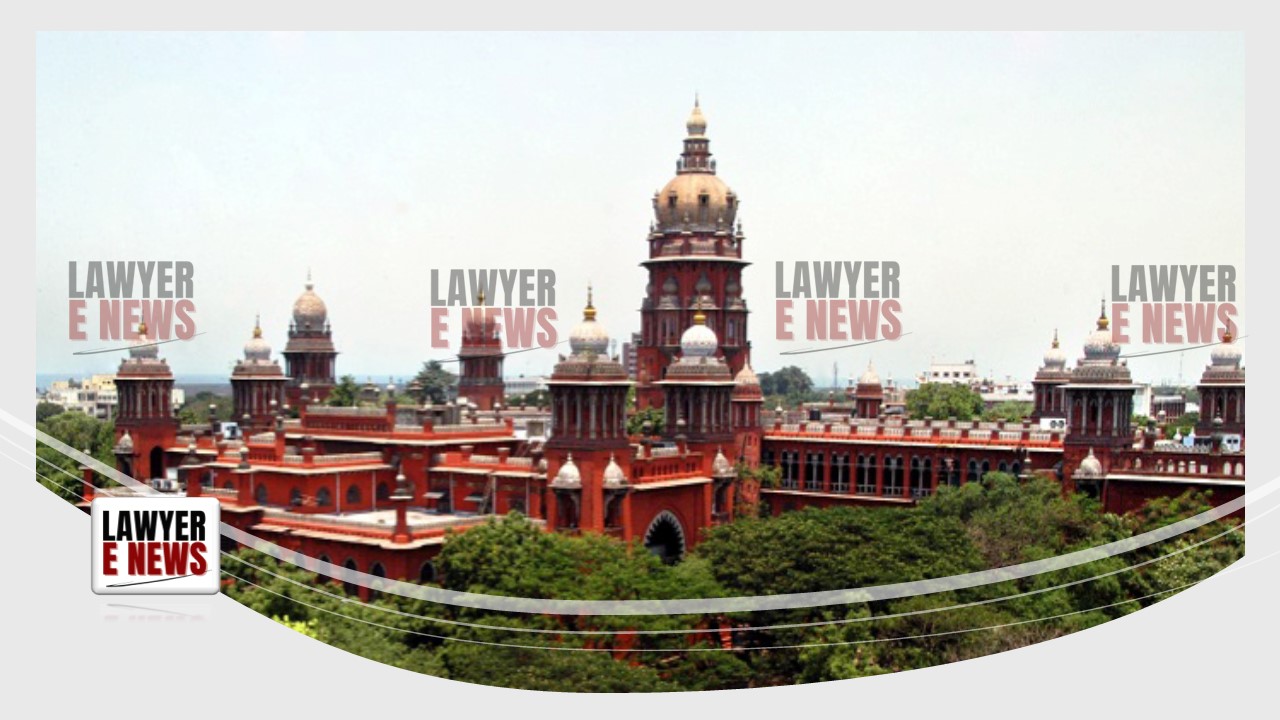-
by Admin
15 February 2026 5:35 AM



High Court reverses trial court findings, recognizing daughters’ coparcenary rights under Hindu Succession (Amendment) Act, 2005, and nullifies alienations during the pending suit.
The Madras High Court, in a landmark decision on July 2, 2024, confirmed the equal coparcenary rights of daughters in ancestral properties, aligning with the Hindu Succession (Amendment) Act, 2005. The bench, comprising Justices R. Subramanian and R. Sakthivel, modified the trial court’s findings, emphasizing the daughters’ entitlement by birth to ancestral properties, and nullified certain transactions that occurred during the pendency of the suit.
The case involved appeals against the trial court’s judgment in a partition suit concerning ancestral properties. The plaintiffs, daughters of the deceased Murugan, sought partition of properties they claimed were ancestral, while the defendants argued that some properties were self-acquired by the first defendant (D1), Devan, and had been sold to bona fide purchasers.
The court held that Item Nos. 1 to 4, 8, and 9 of the suit properties were ancestral. Justice R. Sakthivel noted, “The evidence clearly supports that these properties were acquired from the income of ancestral properties and agricultural activities carried out by the family.” The court rejected the defendants’ claim that these properties were self-acquired, emphasizing the continuity of ancestral income.
Addressing the plaintiffs’ coparcenary rights, the court stated, “Under Section 6 of the Hindu Succession (Amendment) Act, 2005, daughters are entitled to coparcenary rights by birth, on par with sons.” The court refuted the trial court’s stance that the plaintiffs were not entitled to coparcenary rights because their father passed away in 1974, before the amendment.
The court scrutinized the transactions involving Item Nos. 5 to 7, which were sold by D1 before the amendment. Justice Subramanian remarked, “Transactions executed before December 20, 2004, are saved by the proviso under Section 6 of the Hindu Succession Act, as amended.” However, the court invalidated the General Power of Attorney and subsequent sale deeds executed during the pendency of the suit, labeling them as attempts to defraud the plaintiffs’ rightful claims.
The judgment extensively discussed the principles of coparcenary rights and ancestral property. The court reiterated that ancestral property remains such unless proven otherwise, and daughters have equal rights to coparcenary property by birth. The court also emphasized the importance of transparency and fairness in property transactions during pending litigation.
Justice R. Sakthivel highlighted, “The recognition of daughters as coparceners by birth ensures gender equality in inheritance laws and strengthens the position of women in joint Hindu families.” Justice Subramanian added, “Alienations intended to defraud rightful heirs cannot stand the test of law and must be nullified to uphold justice.”
The Madras High Court’s judgment reaffirms the judiciary’s commitment to upholding the equal rights of daughters in ancestral properties. By setting aside the trial court’s erroneous findings and invalidating questionable transactions, the court has fortified the legal framework ensuring fair and just inheritance practices. This landmark decision is expected to have a profound impact on future cases, promoting gender equality in property rights and safeguarding the interests of rightful heirs.
Date of Decision: July 02, 2024
